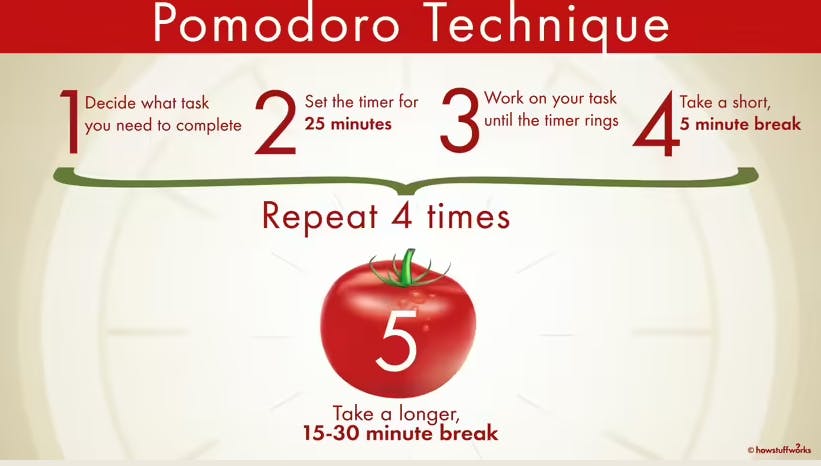Newbies to programming and even veterans are often more focused on learning to code and landing a tech job, paying little or no attention to the health issues associated with the profession, including mental, emotional, and physical. According to a recent survey conducted by Engineering productivity company Haystack Analytics 83% of software developers suffer from workplace burnout, the top reasons cited are high workload (47%), personal life (36%), and inefficient processes (31%) among others.
You may ask,
What is burnout?
Burnout is a state of emotional, physical, and mental exhaustion caused by excessive and prolonged stress. Work-place burnout, as the term denotes, is burnout associated with your place of work. some of its effects include
Loss of motivation.
Sense of failure and self-doubt.
Change in appetite or sleep habits.
Frequent headaches or muscle pain.
Lowered immunity, frequent illnesses.
Decreased satisfaction and sense of accomplishment amongst others.
When I reached out to some developers on Twitter and asked how often they get burnout from coding and how they manage to stay sharp and healthy they shared some tips and habits they use. In this article, I will share these tips and habits that work, and when applied will help you stay sharp, healthy, and productive.
Javascript developer and Linux evangelist Hack Norris
said she uses the Pomodoro technique.
pomodoro technique

In the late 1980s a young university student named Francesco Cirillo was struggling to focus on his studies due to the many distractions he's constantly faced with, he decided to commit to some minutes of focused study time, and with the help of a tomato-shaped kitchen timer, he was able to set intervals between study times which he called "Pomodoro" the Italian word for tomato, since then the Pomodoro technique has come to be and have been used by over 2 million people to transform their lives.
Simply put, the Pomodoro technique is a time management system that uses a timer to break work into intervals(typically 25 minutes). The process is relatively simple and requires these five steps -
Select a task to work on : Create an outline of a task you want to carry out and ones you have your plan ready.
Set timer for 25 minutes : Each interval is known as a pomodoro, and you should note that once a pomodoro has been set it must ring and when interruption occurs the process should be repeated.
Focused work until timer rings.
Take a break when timer rings (5 - 10 minutes).
Repeat the loop until after the fourth pomodoro then take a long break (20 - 30 minutes) and after the long break go back to the step 2.
Aside from making workflow easy and enjoyable this technique is particularly great for focus, if you're struggling to stay focused you may want to give this technique a trial, I use it and it works great.
Oliver Ingle, javascript and web developer
has this to say
I used to get many burnouts from coding, especially after long sessions.
For me, there are a few things that help me to be more productive and stay sharp:
Before I start a coding session, I plan out what I am going to do during that coding session, which allows me to be more efficient and prevents minutes of staring uselessly at my screen wondering what to do
during the week, I do a lot of outdoor sports. I think it's important to spend time outside doing exercise and getting fresh air because it is good for one's physical health, but also mental health, which allows one to think clearly and be sharp when dealing with tasks such as coding
I like to take breaks during my coding sessions
Writer, software developer and UI designer Estee Tey
quipped that she rarely gets burnout from coding but gets burnout from excess social interactions (due to pair programming), and how does she manage to stay sharp? in her words
I think having a variety of activities to do helps me to look forward to different stuff so if I ever get tired of doing one thing I just do another. When I get tired of coding I go write, when I get tired of writing I go talk to people.
This method is called Cognitive shifting, it is the mental process of redirecting your attention and focus in helpful directions. We assimilate little when tired, and being on a particular task for a long time can make such task tiring and uninteresting, by consciously switching tasks before you get entirely drained out will help retain sharpness because each task comes with new excitement.
In all of these, it is imperative to keep your well-being top of mind and choose a good method that works well with you, for Android Grail, an expert in Android development, her health comes first before the job and simply learning new things is a source of refreshment accompanied by music in the background to ease workflow. While getting stressed at programming may be unavoidable, burnout can be prevented. Some other steps to prevent burnout includes
Exercise

Exercises can reduce all forms of stress and emotional exhaustion, improve your mood, and also pumps up the production of endorphins in your brain. Try to exercise 2 - 3 times a week, I try to do 50 press-ups every hour I code you may want to begin with 10 or less. Also, activities such as walking, swimming, long tennis, and other outdoor sports can help you thwart burnout.
Eat healthy foods
Eating a healthy, balanced diet is one of the most important things you can do to protect your health. Eat at least 3 times a day, choose plant-based and high protein foods over ultra-processed foods. Homemade meals remain the best. When possible, make water your only source of liquid and avoid sugary drinks.
Cultivate good sleep habits
You’re not a robot, and pretending to be superhuman can kill you slowly. I've heard people say “I’ll sleep when I die”, this notion is misguided because recovery is essential to productivity, and to be at your best level your brain and body need an adequate and sustained period of rest. Practicing good sleep habits helps to keep burnout at bay. Separate your workspace from your sleeping environment, limit the intake of caffeinated drinks most especially before bedtime, banning smartphones in the bedroom and use of noise machines are among ways you can optimize your sleep.
Find a healthy work-life balance
Don't just code, have a life aside from coding, spend time with loved ones, have time for your hobbies and engage in activities you like, go on periodic vacations, read books or write text entries for your blog. Finding a balance isn't just down to you, your manager and workplace also play a role by creating a supportive and an enabling environment, as software engineer and lead instructor at a web development boot camp Mr. Saeed suggests finding good employers who value your time and allow you to take on roles you enjoy doing as it increases productivity and helps gain a healthy work-life balance.
Complete projects
Completing projects gives a boost and renewed vigor to take on more tasks, having numerous unfinished projects often makes approaching the days work tiring and less attractive, which can ultimately lead to a lack of interest.
Don't overwork yourself
Take on roles you enjoy doing, complete tasks based on their level of importance, get some rest when you're starting to feel tired, and learn to say no when assigned multiple tasks as this gives you more time to focus on tasks you are currently working on. Lastly, ask for help, walk up to your boss and express your concerns if you need to change roles or reduce your workload.
Burnout from coding is real. It zaps your zest, and recognizing the signs is important, it not only affects your job but also, your mood, your life, and interactions with people. Try out some of the discussed methods above to keep burnout at bay.
By the way, I'm Anakhe Ajayi, a java developer, and this is my first blog post. If you find it interesting, consider following me on Twitter and be the first to know when I drop my next content.


